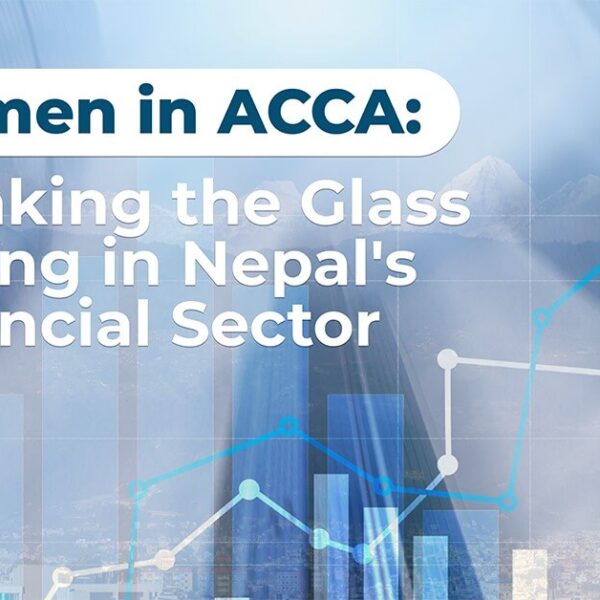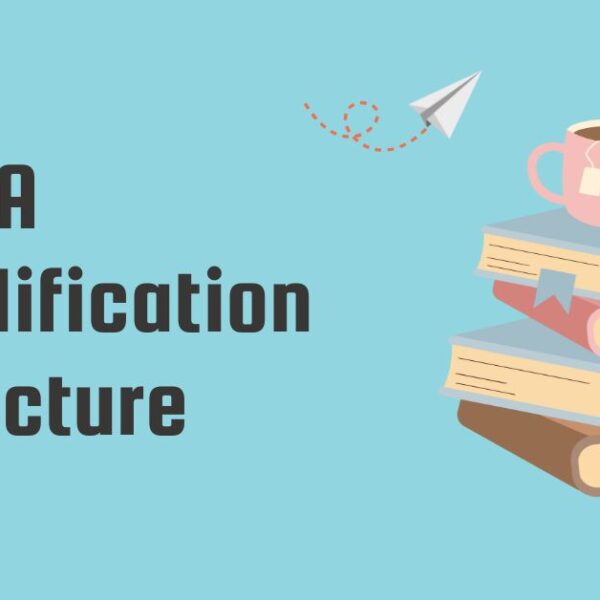Nepal’s financial landscape is undergoing a significant transformation, with professionally qualified women increasingly taking leadership roles and reshaping traditional gender dynamics. For female ACCA professionals, this evolution represents both a challenge and an unprecedented opportunity. This article explores how ACCA-qualified women are breaking barriers in Nepal’s financial sector and creating pathways for future generations of female finance leaders.
The Changing Face of Accounting in Nepal
Historically, Nepal’s accounting and finance profession has been male-dominated, reflecting traditional societal structures. However, recent years have witnessed a remarkable shift. Women now constitute approximately 45% of ACCA students in Nepal, signaling a growing recognition of accounting as a field where women can thrive professionally.
This demographic transformation is gradually extending to the workplace. While senior positions remain disproportionately held by men, the growing pipeline of qualified female accountants is beginning to alter the composition of mid-level management. Companies are increasingly acknowledging the value of gender diversity in enhancing organizational performance and decision-making quality.
Salary Parity and Recognition
The ACCA salary in Nepal has traditionally shown gender disparities, with women often earning less than their male counterparts in equivalent positions. However, the structured nature of the ACCA qualification has contributed to narrowing this gap. With clearly defined professional standards and competencies, ACCA helps establish objective criteria for compensation and advancement.
Leading organizations in Nepal are increasingly implementing merit-based evaluation systems, where qualifications and performance take precedence over gender considerations. In these progressive environments, ACCA-qualified women are achieving salary parity, particularly in multinational corporations, international financial institutions, and forward-thinking domestic companies.
Challenges Unique to Women in Finance
Despite progress, female ACCA professionals in Nepal continue to navigate challenges specific to their gender. Work-life balance remains particularly demanding in a culture where women shoulder disproportionate family responsibilities. The demanding hours common in accounting roles, especially during financial reporting periods, can create significant pressure on women managing multiple roles.
Unconscious bias persists in hiring and promotion decisions, with leadership potential sometimes viewed through traditionally masculine traits. Female accountants report needing to consistently outperform male peers to receive equal recognition, a phenomenon commonly observed across global financial sectors but particularly pronounced in Nepal’s more traditional business environment.
Additionally, limited networking opportunities can restrict career advancement. In a profession where connections often influence professional growth, women sometimes find themselves excluded from informal networks where important relationships are cultivated.
Success Strategies from Nepal’s Female ACCA Leaders
Nepal’s pioneering female ACCA professionals have developed effective strategies to overcome these barriers:
Continuous professional development has proven essential. Successful women in ACCA consistently invest in building specialized expertise that makes their contributions indispensable. By becoming recognized authorities in areas such as taxation, IFRS implementation, or forensic accounting, they establish professional identities that transcend gender stereotypes.
Strategic relationship building has also proven crucial. Rather than attempting to conform to male-dominated networking styles, effective female leaders create their own professional networks through industry associations, alumni groups, and mentorship programs. These networks provide valuable support systems and create alternative pathways to opportunity.
Negotiation skills development is another key focus. Recognizing the documented tendency for women to negotiate less assertively for compensation and promotion, successful female ACCA professionals in Nepal are actively developing these capabilities. Many report that the analytical skills developed through their ACCA training provide a solid foundation for presenting compelling cases for advancement.
ACCA Jobs and Industry Sectors Leading in Gender Equity
Certain sectors within Nepal’s economy have proven more progressive in advancing female ACCA professionals. International development organizations, including UN agencies and international NGOs, have established strong track records for gender equity in their finance departments. These organizations often implement global diversity policies that create opportunities for qualified women.
The banking sector shows mixed progress. While private and international banks are gradually increasing female representation in financial leadership, public banking institutions remain more traditional in their gender composition at senior levels. However, the growing emphasis on corporate governance and risk management has created new pathways where female ACCA professionals are making significant inroads.
Professional services firms present a complex picture. While entry and mid-level positions show improving gender balance, partnership tracks remain challenging for women. However, as client organizations increasingly prioritize supplier diversity, these firms face growing pressure to develop and promote female talent.
The ACCA jobs in Nepal offering the most promising advancement opportunities for women include financial analyst roles in multinational corporations, compliance positions in regulated industries, and specialized advisory functions where technical expertise outweighs traditional power structures.
The Role of Mentorship and Role Models
Mentorship has emerged as a critical accelerator for female advancement in Nepal’s accounting profession. Established female ACCA professionals are increasingly recognizing their responsibility to guide the next generation, providing insights that help younger women navigate both technical challenges and workplace dynamics.
Formal mentorship programs, once rare in Nepal, are becoming more common in progressive organizations. These structured relationships provide safe spaces for addressing gender-specific challenges and developing strategies to overcome them. Informal mentoring networks are also flourishing, often facilitated through professional associations and alumni connections.
Role models play an equally important function. Every visible female CFO, audit partner, or finance director challenges assumptions about leadership capabilities. Their success stories provide powerful counternarratives to traditional limitations, demonstrating the tangible possibilities for aspiring female accountants.
Organizational Policies Supporting Women’s Advancement
Forward-thinking organizations in Nepal are implementing policies specifically designed to support female talent retention and advancement. Flexible working arrangements, once considered impossible in client-facing accounting roles, have gained traction, accelerated by remote work capabilities demonstrated during the pandemic.
Progressive parental leave policies are emerging in international organizations and select domestic companies, allowing women to maintain career continuity through family formation stages. Additionally, some organizations are implementing sponsorship programs that pair high-potential female accountants with senior executives who advocate for their advancement and visibility.
Transparency in promotion criteria represents another meaningful reform. By establishing clear, objective standards for advancement, organizations reduce the impact of subjective judgments that often disadvantage women. ACCA’s competency framework provides a valuable foundation for such objective evaluation systems.
The Future Landscape: ACCA’s Role in Gender Equity
The ACCA scope in Nepal continues to expand, creating new opportunities for all qualified professionals. For women, the qualification offers particular advantages through its emphasis on objective assessment and standardized professional requirements. As the profession evolves toward more advisory and strategic functions, the collaborative and relationship-oriented strengths often associated with female professionals may become increasingly valued.
ACCA’s institutional commitment to diversity further supports female advancement. Through research highlighting the business benefits of gender-balanced leadership, advocacy for policy reforms, and programs specifically supporting female members, the organization actively contributes to breaking down barriers.
Advice for Aspiring Female ACCA Professionals
For women beginning their ACCA journey in Nepal, established female leaders offer several recommendations:
Develop technical excellence as your foundation. When your capabilities are exceptional, gender becomes less relevant to how you’re perceived professionally. The ACCA qualification provides a globally recognized validation of your expertise.
Build your professional network intentionally, connecting with both male and female colleagues who support your advancement. Seek mentors who can guide you through specific challenges, and don’t hesitate to approach successful women whose careers you admire.
Advocate for yourself effectively by documenting your contributions and communicating them appropriately. The skills in analysis and presentation developed through ACCA training provide valuable tools for articulating your value to organizations.
Consider your career strategically, researching organizational cultures before joining. Seek environments with demonstrated commitments to gender equity through their policies and leadership composition. The growing number of ACCA jobs in Nepal provides greater selection opportunities than ever before.
Conclusion: Reshaping Nepal’s Financial Leadership
The ACCA salary in Nepal and career progression potential are increasingly becoming gender-neutral as more women establish themselves in leadership positions. While challenges remain, the combination of qualified female professionals, evolving organizational practices, and ACCA’s institutional support is creating unprecedented momentum for change.
As Nepal’s economy continues to develop and integrate with global markets, the demand for skilled financial professionals will only increase. Female ACCA members are uniquely positioned to meet this demand, bringing both technical excellence and diverse perspectives to organizations navigating complex financial challenges.
The increasing visibility of female financial leaders serves as both evidence of progress and catalyst for further advancement. Each woman who breaks through traditional barriers expands possibilities for those who follow, gradually transforming Nepal’s financial sector into a field where talent and capability transcend gender considerations.








